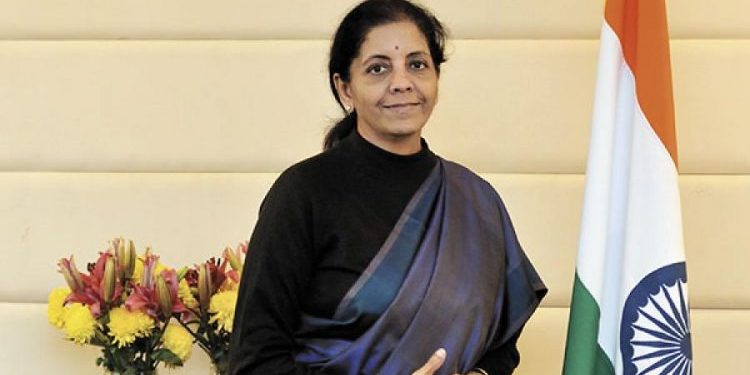New Delhi: Finance Minister Nirmala Sitharaman will be meeting the PSU bank heads and major private sector banks August 5 to review credit growth in various sectors like MSMEs, retail, auto, NBFCs and HFCs which will provide key indications for the steps needed to accelerate GDP growth.
The Finance Minister will also meet stakeholders next week to finalise decisions and timelines for action on the UK Sinha Panel report on MSME sector, an official statement said Friday.
Many of the actions proposed by the committee involve inter-ministerial coordination. The Finance Minister will be holding a meeting within the next week with revenue and expenditure departments, MSME ministry, and also ministries IT, rural development, health and family welfare, corporate affairs and Commerce as well as telecom to finalise decisions and timelines for action, the statement said.
The expert committee of UK Sinha which submitted the MSMEs recommendations for the sector’s development in June, suggested Rs 5,000 crore stressed asset fund for MSMEs on the lines of the Textile Upgradation Fund Scheme in a relief to small businesses hurt by demonetization, the Goods and Services Tax and an ongoing liquidity crunch.
The committee said such a fund could work in tandem with RBI-mandated restructuring schemes or bank-led NPA revival solutions for MSMEs. The committee also suggested forming a government-sponsored Fund of Rs 10,000 crore to support venture capital and private equity firms investing in MSMEs.
Small businesses have been facing a spate of disruptions since the government decided to demonetize high-value currency notes in November 2016. This was followed by implementation of the GST in 2017, and then the liquidity crunch triggered by a series of debt defaults by group companies of Infrastructure Leasing and Financial Services Ltd in 2018.
India’s 63.38 million MSMEs contribute significantly to the country’s economic growth. The sector accounts for about 45% of manufacturing output, more than 40% of exports, over 28% of Gross Domestic Product and employs about 111 million people.
Automobile sector witnessed the worst July sales in two decades. Industry sank deeper in July with sales at some of the top passenger vehicle makers plunging to their worst in about two decades.
The FMCG sector also slowed down due to lower consumption in rural market. Rising economic slowdown leading to investments and stress in the non-bank lending space dimmed demand from both urban and rural consumers. Irregular monsoon rain this year further hit rural sentiments in an economy starved of fresh private investments.
The Financial Stability Report (FSR) of RBI in June stated credit growth of scheduled commercial banks (SCBs) picked up, with public sector banks (PSBs) registering near double digit growth. Capital adequacy of the SCBs improved after the recapitalisation of PSBs.
(IANS)







































